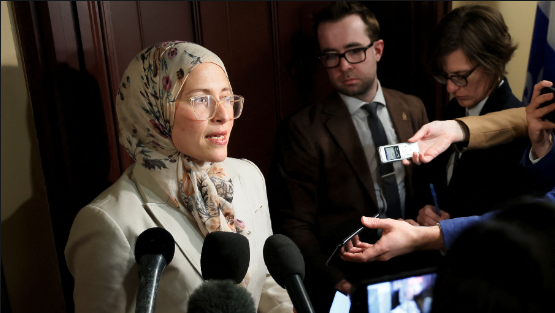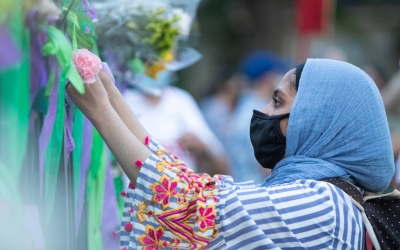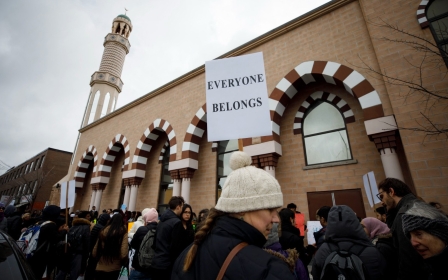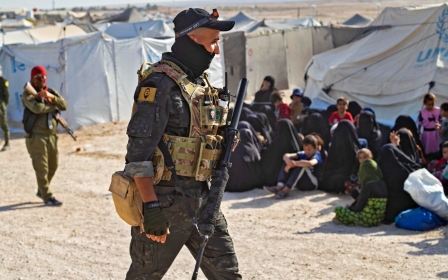Canada's new anti-Islamophobia envoy faces backlash over past comments on Quebec

Canada's new anti-Islamophobia representative is facing backlash over her previous criticism of a Quebec law that bans public-facing employees from wearing religious symbols, including the hijab.
Amira Elghawaby on Wednesday apologised for past remarks she made, in which she stated that the majority of people in Quebec were being swayed by anti-Muslim sentiment.
Elghawaby, who was appointed last week as Canada's special envoy on combating Islamophobia, made the apology before meeting with Yves-Francois Blanchet, the leader of the Bloc Quebecois political party.
"I would like to say that I am extremely sorry for the way that my words have carried, how I have hurt the people of Quebec," she said.
"I understand that the words and the way that I said them have hurt the people of Quebec. I have been listening very carefully. I have heard you and I know what you're feeling and I'm sorry."
New MEE newsletter: Jerusalem Dispatch
Sign up to get the latest insights and analysis on Israel-Palestine, alongside Turkey Unpacked and other MEE newsletters
Elghawaby made the remarks about Quebec in an opinion column she co-wrote that appeared in the Ottawa Citizen in 2019.
The column was a commentary on Quebec's controversial Bill 21, which bans public servants from wearing religious symbols such as hijabs.
The legislation has drawn widespread controversy since it was passed and sparked protests and lawsuits from civil liberties groups who say it infringes on religious freedoms.
"Unfortunately, the majority of Quebecers appear to be swayed not by the rule of law, but by anti-Muslim sentiment," Elghawaby wrote.
The column cites a Leger Marketing poll which found that 88 percent of Quebecers who held negative views of Islam overwhelmingly supported the ban on religious symbols for public servants.
Jean-François Roberge, Quebec's minister responsible for the French language, called for Elghawaby's resignation, saying that she "seems to be overcome by an anti-Quebec sentiment".
"All she did was try to justify her hateful comments," he said. "That doesn't fly. She must resign and if she doesn't, the government must remove her immediately."
"I'm glad that she apologised but she still has to resign," he said.
Canadian Prime Minister Justin Trudeau said Elghawaby is qualified for the job of reaching out to both secular and religious Quebecers.
Experts in Canada have previously told MEE, that while the country is seen by the outside world as a haven for multiculturalism, Canada has witnessed decades of anti-Muslim rhetoric both from politicians and the media.
In 2021, hate crimes against Muslim communities across Canada increased by 71 percent, according to a report by the government agency Statistics Canada.
The rise in attacks in 2021 corresponds to the killing of four members of the Afzaal family in London, Ontario.
The attacker, 20-year-old Nathaniel Veltman, deliberately slammed his pick-up truck into Salman Afzaal, 46, his 77-year-old mother, his wife Madiha, 44, and their 15-year-old daughter Yumna, as they were waiting to cross the road. Only nine-year-old Faez survived the attack.
Middle East Eye delivers independent and unrivalled coverage and analysis of the Middle East, North Africa and beyond. To learn more about republishing this content and the associated fees, please fill out this form. More about MEE can be found here.





